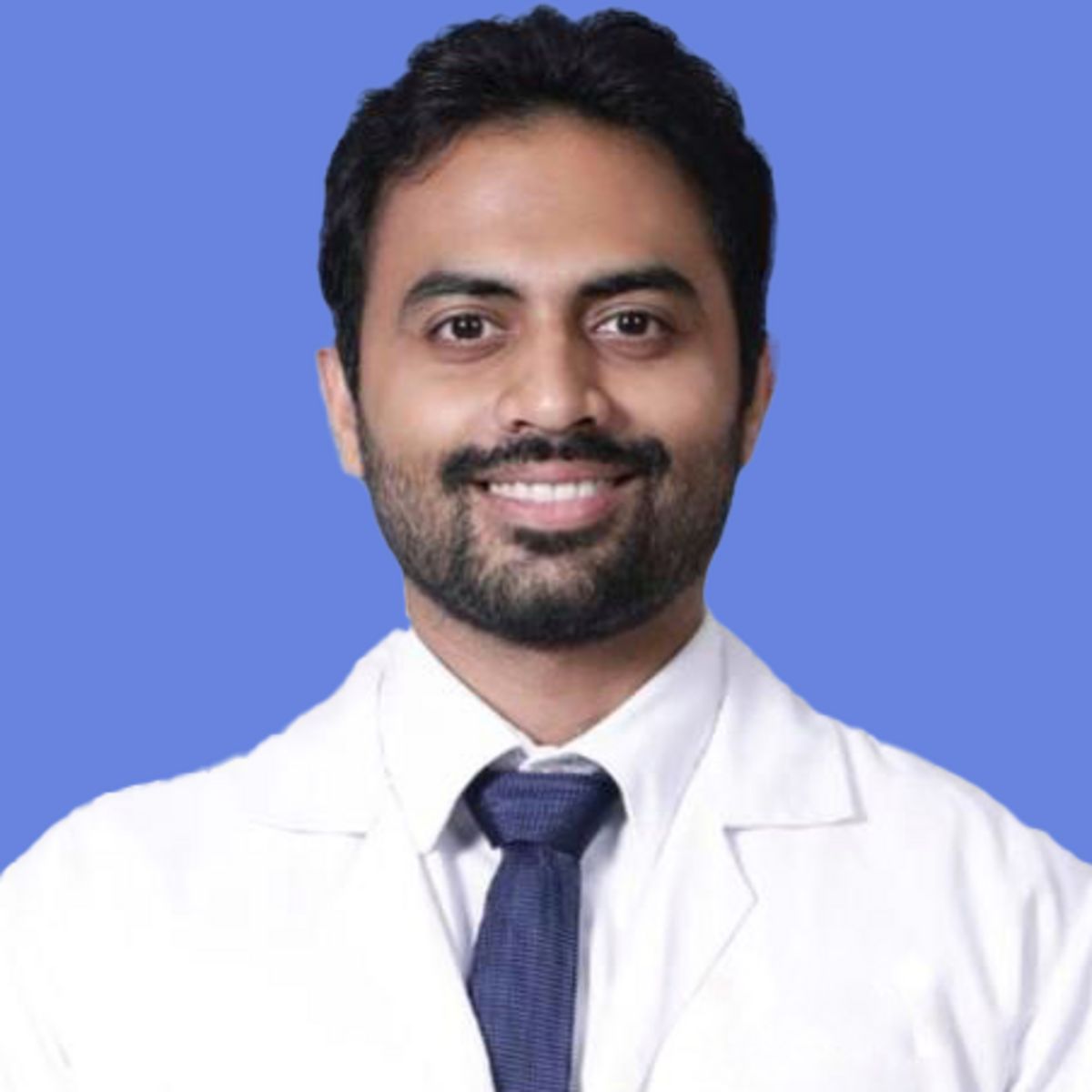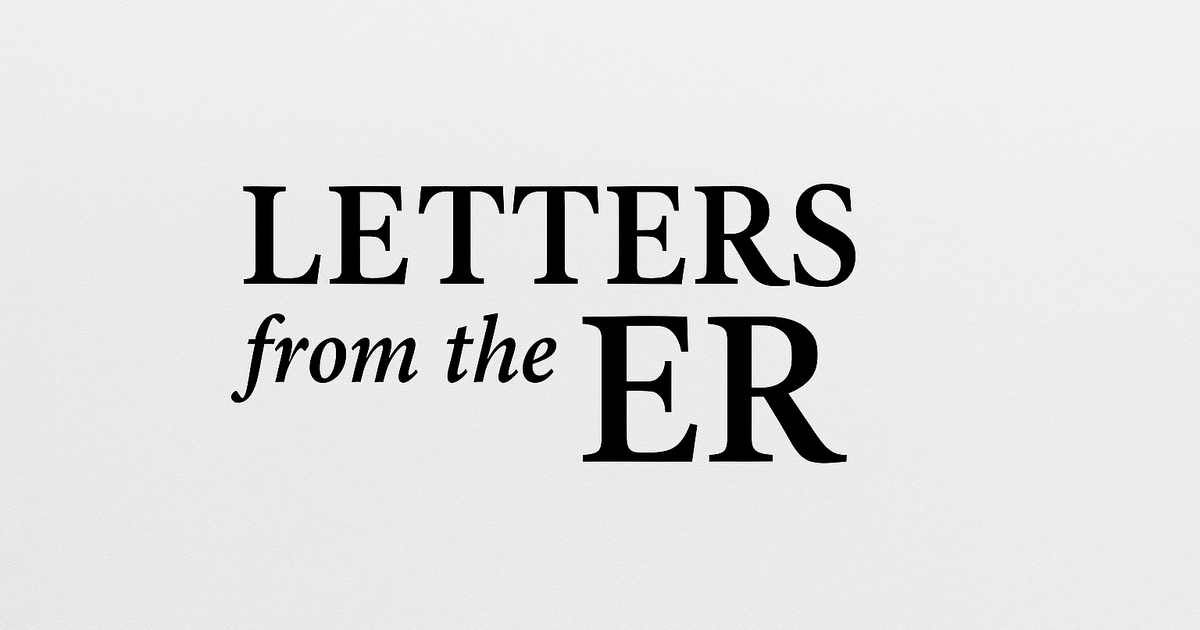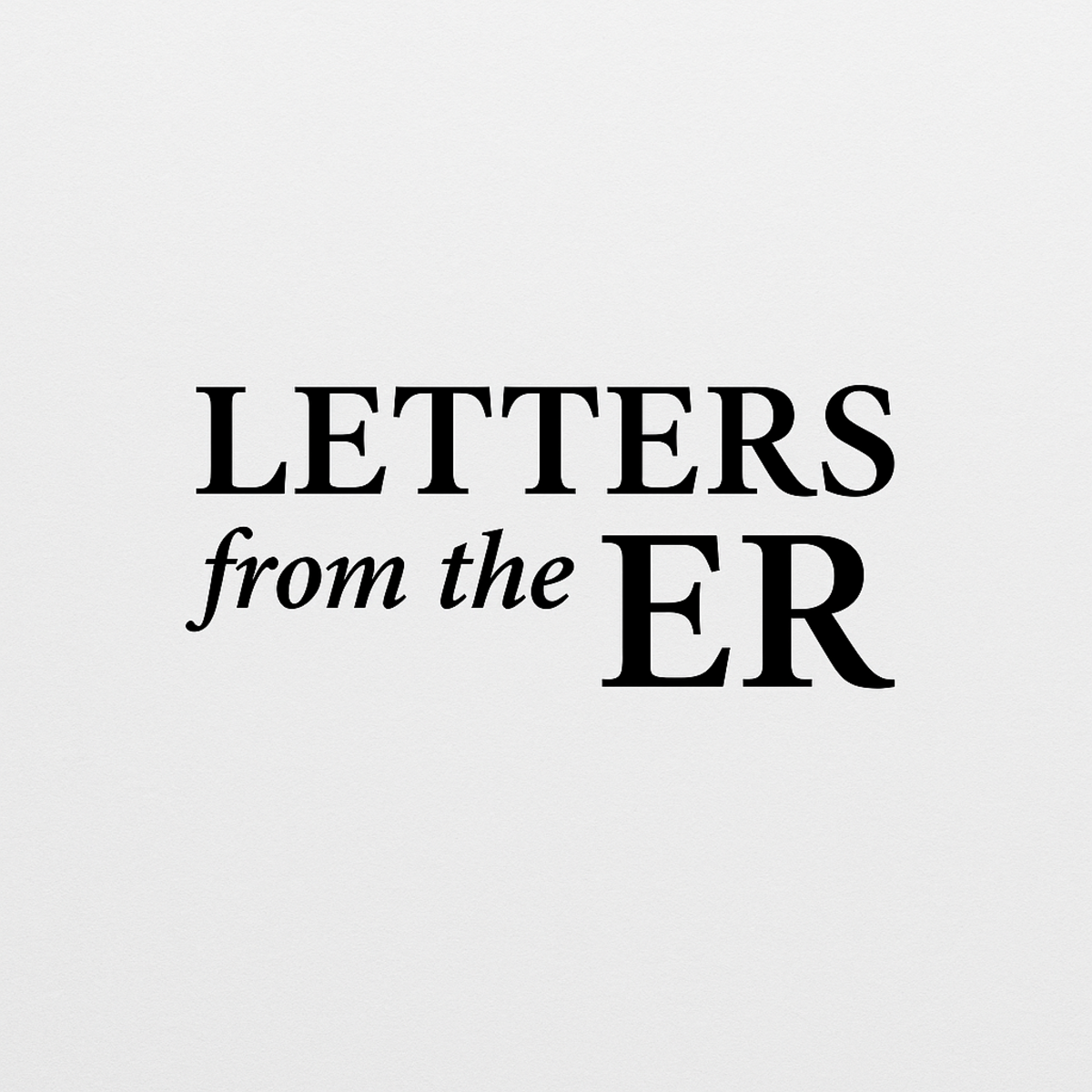Please click "Read Online" at the top of the email for better reading experience.The First Relief
42/M
He arrived with breathlessness.
Not the kind that floods a room
with sirens and shouts,
but the quiet, gnawing kind,
the kind that makes a man restless in his own skin.
He sat upright,
unable to complete his sentences,
his lungs fluttering
like a torn paper in the wind.
Sats: 82% on room air.
We gave him oxygen,
four liters per minute
through a Hudson’s mask.
The numbers obediently climbed to 96.
His shoulders eased,
Eyes softened.
Relief washed through him
like cool rain on parched earth.
Yet with that came the most dangerous
illusion of medicine:
that the storm had passed.
The Unease
His vitals settled, tolerable.
His chest X-ray was pristine.
His echo unremarkable.
His ECG showed only a hurried heart.
The machines spoke in the language of reassurance.
But something in him wasn't right.
There is a silence flesh carries,
a silence more violent than alarms.
It lingers in the cautious rise of a chest,
in the way a man holds his breath,
as though terrified of what exhaling might unleash.
So we pressed further.
A story emerged:
An Uber driver.
Weeks of driving, endless hours imprisoned in a seat.
A long journey home, only two days ago.
The pieces fell together
like bones rattling in a crypt.
The Revelation
Pulmonary embolism.
The CT scan delivered it without pity:
a massive saddle embolus,
straddling both lungs
like an executioner’s rope.
A traveller born in stillness
forged in the long corridors of immobility,
now resting inside him
with murderous patience.
Death sat comfortably in his chest,
already rehearsing the end.
But we refused to be its audience.
Tenecteplase was hurled into his veins,
a chemical blade, sharp and merciless,
carving open the clot’s tyranny.
Heparin followed,
steady, unyielding, relentless.
We watched his every breath,
guarding it like monks tending a fragile flame.
And slowly, miraculously,
the rope around his lungs loosened.
His lungs unfurled.
Life, teetering on the edge,
stepped back from the cliff.
Before the ICU transfer,
he looked at us, voice soft.
“I thought it was just fatigue,” he said.
Such an ordinary sentence.
But in it, an entire universe,
nearly extinguished.
The Lesson
What saved him was not only the drug.
It was doubt.
Had we accepted the comfort of the first relief,
his grave would’ve been dug in silence.
Had we believed the machines,
his diagnosis would’ve been buried with him.
Had we trusted stability,
he wouldn’t have lived to smile.
Reassessment.
The sacred ritual of Emergency Medicine.
The refusal to kneel before appearances.
The humility to distrust.
The courage to interrogate life itself,
knowing it lies as often as it speaks.
In this trade,
numbers can lie.
Breath regained is only a loan.
And the ER belongs not to those who believe,
but to those who doubt.
The Thought That Lingered
That night, I thought of all the travellers.
People asleep in airplanes,
trapped in car seats for hours,
moving through highways of stillness.
Their blood quietly thickening,
their veins plotting mutiny,
death hiding behind their ribs.
How many will never reach a hospital?
How many will never meet the clot face-to-face?
How many will collapse mid-journey,
a life stolen by a passenger they never saw?
This man lived because we paused,
and asked twice,
and refused the comfort of the first answer.
This, perhaps, is the heart of Emergency Medicine.
To disbelieve relief,
to hunt the silence,
to doubt the normal.
For the reaper does not arrive
with drums or banners.
He comes clothed in stillness,
offering a smile that tempts you to look away.
“The greatest obstacle to discovery is not ignorance -
it is the illusion of knowledge.”
If this made you pause, forward it to someone who might need it.
WhatsApp, Facebook, or X - one click away.
More soon.
Another moment.
Another reminder that we are still, somehow, human in all of this.
Yours,
Dr. Adarsh Nath,
Letters from the ER



